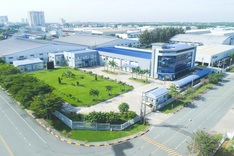Local animal feed importers are very worried about losses incurred because they have been required to send back a large volume of maize.
 |
| The importers are worried about the re-exportation |
100,000 tonnes of maize, imported by 19 companies from India in early January, is now being held at Haiphong and Saigon ports because traces of worms and and termites were detected.
The Ministry of Agriculture and Rural Development\'s Plant Protection Department asked these firms to re-export the material back to India, instead of allowing them to fumigate the shipments. This has worried the importers involved because of their potential losses.
Tran Thanh Quang, the association member, said that in the past the department has allowed fumigation of such the material. This time, however, the goods have been refused entry.
According to the Vietnam Feed Association, if this amount of maize is re-exported, the domestic market is likely to face with a serious shortage of animal feed in March, which would cause a price hike of this material.
Quang noted that, because of a material shortage of domestic animal feed production, maize prices in Vietnam have increased from VND6,500 - VND7,500 (USD0.31-USD0.36) per kilogramme. For this reason, the re-exportation of such a large amount would have a substantial effect on the domestic market.
Le Ba Lich, Chairman of the association, said local animal feed producers are in dire need of material, while the stronger USD, along with this re-exportation would contribute to the overall national inflation rate.
The association is seeking the Ministry of Agriculture and Rural Development’s approval to clear holds on the maize which that shows no sign of infestation.
In the long term, the ministry should work alongside the Indian Ministry of Agriculture to fumigate livestock feed imports instead of sending them back, Lich said. He also noted that this could cause problems for other Vietnamese firms who want to import animal feed from countries besides India.
The time it takes for shipment of such products from India is 15-20 days, while the time and cost is significantly higher from high-producing countries.




















